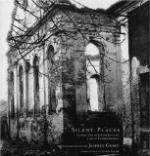Sam, watchful but also silent, could almost follow his mental processes. The canoe meant travel, the meagreness of the outfits either rapid or short travel, the two steel traps travel beyond the sources of supply. Then inspection passed lightly over the girl and from her to the younger man. With a flash of illumination Sam Bolton saw how valuable in allaying suspicion this evidence of a peaceful errand might prove to be. Men did not bring their women on important missions involving speed and danger.
Abruptly the Indian spoke, going directly to the heart of the matter, after the Indian fashion.
“Where you from?”
“Winnipeg,” replied Sam, naming the headquarters of the Company.
The direction of travel was toward Winnipeg. Sam was perfectly aware of the discrepancy, but he knew better than to offer gratuitous explanation. The Indian smoked.
“Where you come from now?” he inquired, finally.
“Tschi-gammi[5].”
[Footnote 5: Lake Superior.]
This was understandable. Remained only the object of an expedition of this peculiar character. Sam Bolton knew that the Indian would satisfy himself by surmises,—he would never apply the direct question to a man’s affairs,—and surmise might come dangerously near the truth. So he proceeded to impart a little information in his own way.
“You are the hunter of this district?” Sam asked.
“Yes.”
“How far do you trap?”
The Indian mentioned creeks and rivers as his boundaries.
“Where do you get your debt?”
“Missinaibi.”
“That is a long trail.”
“Yes.”
“Do many take it each year?”
The Indian mentioned rapidly a dozen names of families.
Sam at once took another tack.
“I do not know this country. Are there large lakes?”
“There is Animiki.”
“Has it fish? Good wood?”
“Much wood. Oga[6], kinoj[7].”
[Footnote 6: Pickerel.]
[Footnote 7: Pike.]
Sam paused.
“Could a brigade of canoes reach it easily?” he inquired.
Now a brigade is distinctly an institution of the Honourable the Hudson’s Bay Company. It is used for two purposes; to maintain communication with the outside world, and to establish winter camps in the autumn or to break them up in the spring. At once the situation became clear. A gleam of comprehension flashed over the Indian’s eyes. With the peculiar attention to detail distinctively the forest runner’s he indicated a route. Sam was satisfied to let the matter rest there for the present.
The next evening he visited the Indian’s camp. It was made under a spreading tree, the tepee poles partly resting against some of the lower branches. The squaw and her woman child kept to the shadows of the wigwam, but the boy, a youth of perhaps fifteen years, joined the men by the fire.




